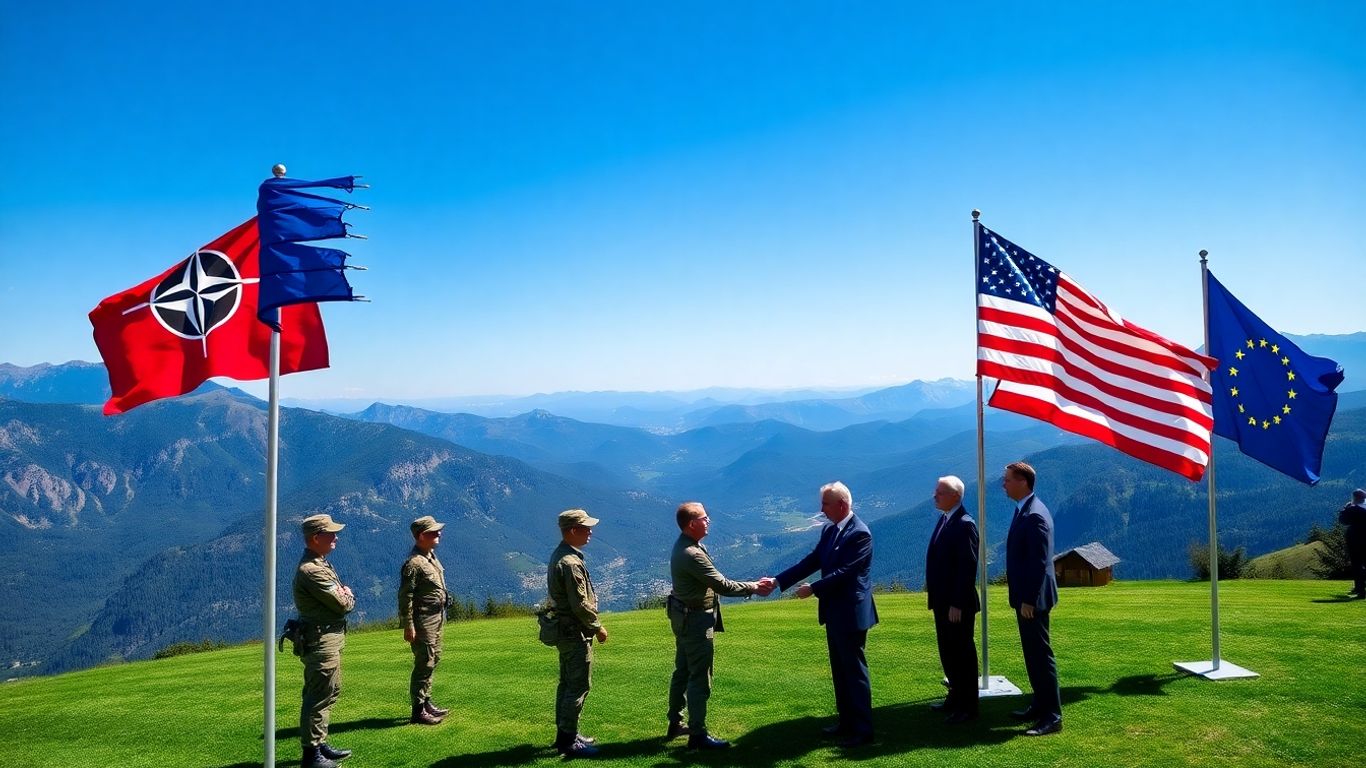The Western Balkans have returned to the center stage of Euro-Atlantic strategy, as NATO Secretary General Mark Rutte, EU officials, and US leaders intensify efforts to reinforce regional security, advance enlargement, and prevent destabilizing external influences. Their renewed commitment signals both an urgency and opportunity for greater Western engagement in a region crucial to European stability.
Key Takeaways
- NATO and EU reinforce commitment to Western Balkan stability and integration.
- Berlin Process and recent diplomatic visits underline urgency for regional reconciliation, reform, and progress toward EU accession.
- External actors, especially Russia and China, intensify presence, heightening the need for cohesive Western strategies.
NATO and EU’s Renewed Commitment to Stability
NATO’s leadership, notably through Secretary General Mark Rutte’s recent visits to Sarajevo and Pristina, reaffirmed firm support for Bosnia and Herzegovina’s sovereignty and Kosovo’s security apparatus. The Alliance pledged to avoid any security vacuum and counter inflammatory rhetoric or actions threatening the Dayton Agreement and regional peace.
Rutte emphasized that NATO’s continued troop presence, primarily through KFOR and advisory missions, aims to promote a secure environment in Kosovo. Furthermore, NATO will cooperate closely with the EU’s missions and support local capacity-building to maintain lasting peace and safeguard all communities’ rights.
The Strategic Imperative of EU Enlargement
The EU, through high-level visits like that of High Representative Kaja Kallas, stressed the necessity of stability as a pre-condition for enlargement. With countries like Albania and Montenegro as frontrunners, and Bosnia and Herzegovina’s complex situation, the EU highlighted the need to prevent political or security escalations that would hinder the enlargement process.
Enlargement timelines hinge upon the region’s ability to move beyond being passive recipients of security guarantees to becoming active contributors to European defense and resilience. The newly launched EU–Albania Security and Defence Dialogue and similar agreements with North Macedonia exemplify steps toward deeper integration—aligning the region with the evolving EU defense vision and enhancing its strategic role.
Addressing External Pressures and Regional Fragmentation
Persistent challenges—ethnic divisions, fragile institutions, and external interference—continue to impede sustainable development in the Western Balkans. External actors like Russia, China, and Türkiye employ economic investments, energy dominance, and cultural diplomacy to expand influence and deter Euro-Atlantic alignment.
To counter these trends, experts call for:
- Clear EU Accession Conditionality: Tangible reforms in governance, rule of law, and anti-corruption efforts.
- Targeted Investment: Infrastructure and digital connectivity aligned with EU standards to reduce dependency on non-Western actors.
- Strengthened Security Cooperation: Enhanced NATO-EU coordination and intelligence sharing.
Delays in integration risk renewed ethnic tensions and undermine European security, reinforcing the urgency for a fast, united Western response.
Economic and Social Integration: The Road Ahead
Economic modernization and integration into the EU single market would unlock growth and resilience for the Western Balkans. Regional cooperation—via initiatives such as the Berlin Process—also remains pivotal, aiming to bridge divides, foster reconciliation, and create cross-border opportunities in trade, youth exchanges, and educational recognition.
With the next Berlin Process summit set in Belfast, the symbolic choice of location underscores the importance of reconciliation and the hope that, with patience and political will, the region can move towards long-term stability.
Conclusion
The Western Balkans’ path to the EU and deeper NATO ties is at a critical juncture. The region’s future will be shaped not just by foreign security guarantees but by its own reforms, resilience, and proactive contributions to Europe’s collective defense. The window to integrate and secure the Western Balkans is open, but the risks of hesitation or fragmentation have rarely been higher.
Sources
- News: NATO reaffirms its commitment to Western Balkans stability, as Secretary General Rutte wraps up
visits to Sarajevo and Pristina, 10-Mar.-2025, NATO. - Reintegrating the Western Balkans: Strategic Imperatives for EU and NATO, Global Policy Journal.
- From recipient to contributor: The Western Balkans in Europe’s Security and Defence Equation, European Union Institute for Security Studies |.
- Stability on the agenda, enlargement on the line: Why HR/VP Kallas’ Western Balkans visit is more than
symbolic, European Union Institute for Security Studies |. - Berlin Process: New impetus for the Western Balkans moving closer to the EU, Auswärtiges Amt.






